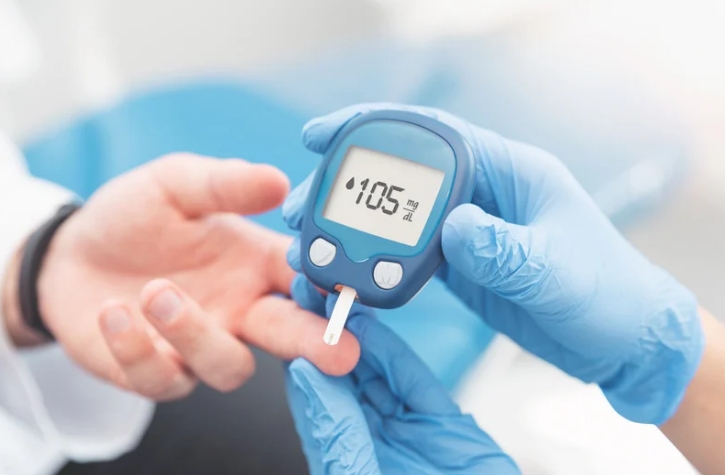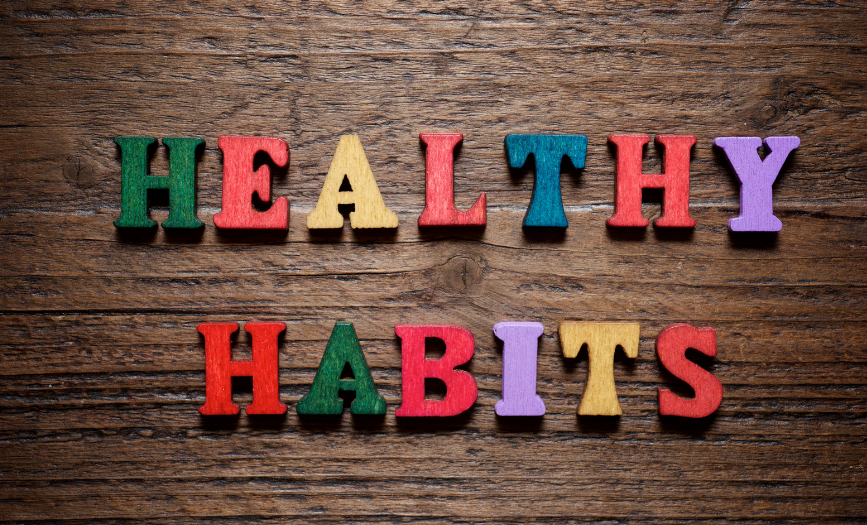
Have you ever been caught in the rain with a lousy umbrella? The kind where a few of the spokes are broken, it's difficult to open all the way and when the wind blows, it turns inside out leaving you soaked and defeated. Those faulty umbrellas might help out a bit in a drizzle, but in the midst of a real storm, they're useless.
What's this got to do with self-care, though? In my opinion, self-care is the umbrella that protects us from the
I have always thought of self-care as a strong, sturdy umbrella. When skies are sunny, and all is well, it is easier to get by without the umbrella or one that isn't particularly well made or maintained. When life demands that we keep up, do more, stay alert, focused and in control, though, we need that strong umbrella to get us through the downpour.
Each spoke of the umbrella represents one of the five components of self-care: sleep, nutrition, exercise and movement, stress management and "me" time. The spokes are simultaneously co-dependent while impacting one another. If we only focus on one or two of the spokes, the others become weak and non-existent, thereby making the umbrella impracticable when we really need its coverage.
For instance, when we are lacking in sleep and exhausted, it is hard to muster the willpower to get to the gym. When we are overly stressed or worried, we can't sleep. If, despite eating well and exercising daily you feel like life has no meaning or purpose, you certainly won't be living a successful, happy life.
Most people have busy, complicated lives in which they are desperately trying to balance many roles and many responsibilities. And let's face it, we would like some time and energy left to enjoy our friends, family, hobbies and
How in the world will we have enough energy to do it all and do it well? We need to always have a sturdy umbrella keeping us strong and protected. Self-care is that umbrella.
You Without Self-Care
Exercise, nutrition, sleep and stress management all have a profound effect on our health and in the prevention of illness and disease, of course, Today, thanks to the use of
Thanks to advancements in the field, research has proven that skipping meals can cause cognitive performance to decline; sleep deprivation directly impairs judgment, memory, learning and work performance by lowering alertness and our ability to stay focused; and persistent, recurring stress sends cortisol streaming through the body, which can influence the makeup of your brain, weakening electrical signals associated with factual memory and strengthening areas associated with emotions, among other reactions.
But you don't need the research lab to prove that when you are over-worked, exhausted, stressed out or hungry, you can't function at your best. Without proper self-care strategies in place, people often feel irritable, cranky, short-tempered and highly emotional. Lack of self-care puts your emotional brain, rather than your rational brain, in the driver's seat.
Why is it, then, that so many, despite knowing self-care would make them feel and function better, push it to the bottom of the daily "to-do" list?
The number one reason? Not enough time. Too many perceive self-care as a luxury, not a necessity. Something we squeeze in occasionally when we can. When life gets very busy, or we are going through a particularly stressful event, it is often the first thing we neglect. Ironically, that's when we need it the most.
Small Steps to Smarter Self-Care
When you decide that self-care is not a
Adding self-care to your routine can be as easy as being mindful in your day-to-day and making small changes. Start with some of these easy-to-implement ideas:
- Eat often and eat light. Do your best not to go more than three to four hours in between meals or snacks.
- Drink a glass of water first thing in the morning, with every meal and sip often throughout the day.
- If possible, always take a lunch break away from your work and technology. Enjoy the break, the food and the chance to recharge before your productive afternoon.
- Aim for seven to nine hours of sleep each night. Stick to a consistent bedtime routine, and power down your electronics at least an hour before bed.
- Take frequent movement breaks while working. If you easily get bogged down by work, set an alert to remember to get up, stretch, move and drink water every 60 to 90 minutes.
- Aim for a minimum of 10 to 30 minutes of exercise on most days of the week. Breaking it up into shorter intervals is just as beneficial.
- Schedule exercise on the calendar and treat it with the same importance as any other business or personal appointment.
- Calm your daily life. Stop multitasking, put boundaries around technology and minimize distractions when working.
- Try deep breathing, journaling, meditation or yoga to calm and strengthen the mind. Build your personal stress management toolbox.
- Spend time reflecting on the things that bring meaning and purpose into your life. Incorporate them more often into your week. Whether it is attending services at church or temple, spending time in nature or keeping a gratitude journal, include a spiritual practice into your week.
- Schedule "me-time." At least once a week put something on the calendar that is just for you. Get your nails done, curl up with a good book, go out for dinner with a friend. Doing something just because it makes you happy will rejuvenate and give you the energy to give back with an open heart to everyone and everything that demands your attention for the rest of the week.













